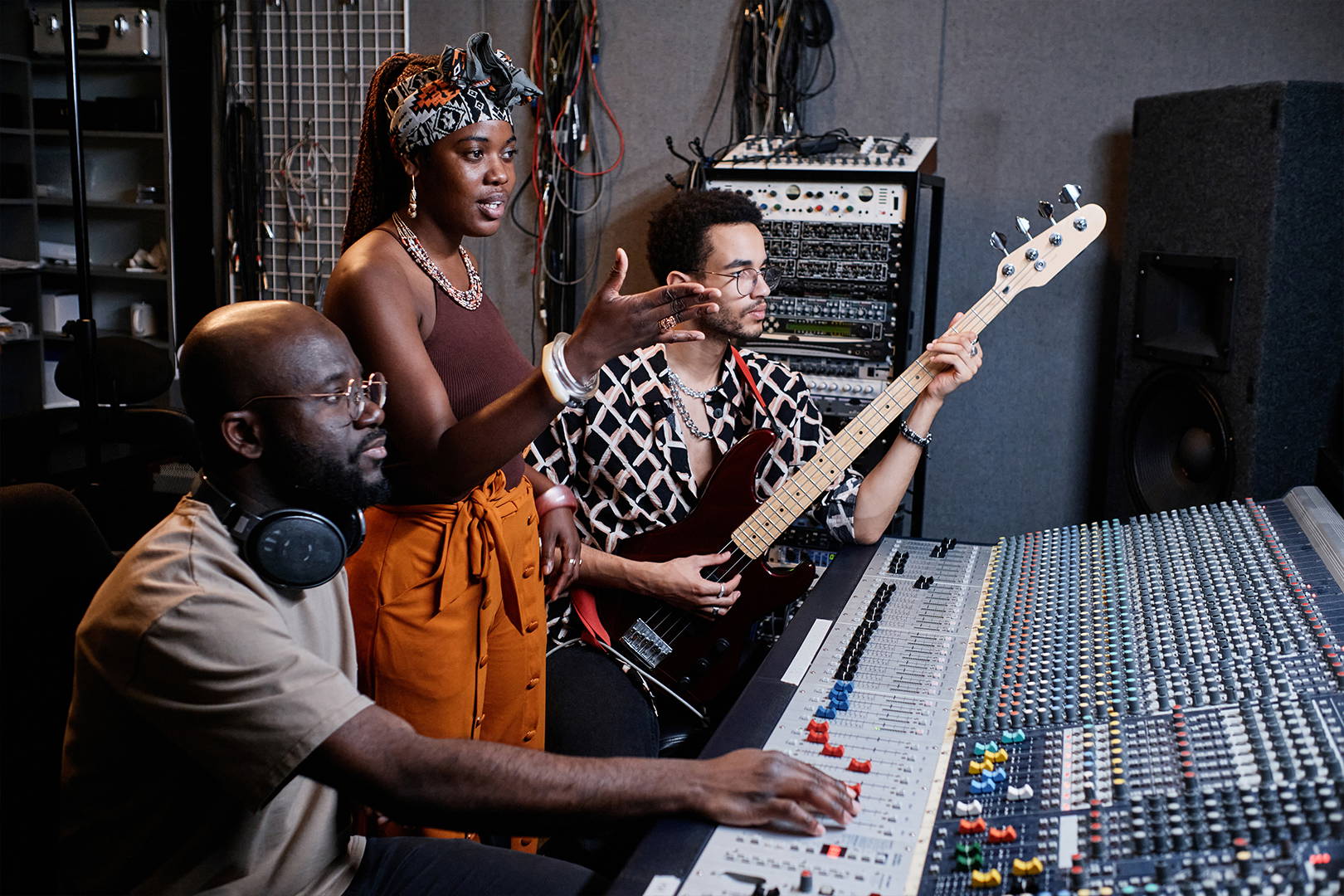A career writing music can be incredibly tough and sometimes it will be hard to stay motivated. Over time the challenges you might face, such as intense competition for work, financial constraints or difficult working relationships can negatively impact the benefits of a career doing something you love.
During these times it can help to connect with the original intention of why you wanted to do this in the first place. Often writers talk about their love of music before it became ‘serious’, or the stress involved with making music pay the bills. During difficult motivational times, it can help to reconnect with your ‘why’ and the things you loved about writing music in the first place.
Sound Advice co-author, Lucy Heyman, also recommends asking yourself the following questions:
Think of a time when you were at your best, creatively:
- What were you working on?
- Where were you?
- Were you working alone? If not, who were you with?
- What had you done beforehand?
- How did you feel?
Now think of a time when you were really stuck creatively and answer the same questions. Can you see any patterns? Write down what your ideal creative conditions are and incorporate them into your routine.
This exercise may have shown that you prefer to work in a team, or you need to leave the house to have good ideas. Whatever comes up, try replicating the conditions that enabled you to be at your best, creatively, and see how you get on.
Goal Setting
Another way to stay motivated and productive is to set clear, actionable goals for work (Locke & Latham, 2002).
As a freelancer it can be tempting to take on any work that you’re offered, but over time, if it doesn’t align with your goals and values, you may find that you struggle to stay motivated.
So how do you set goals that align with your values? Firstly, try this exercise from Sound Advice:
- What kind of person do I want to be in the world?
- What meaning do I want to create in my life?
- What do I want to contribute to the world and why?
- If I could sum up the reason why I do what I do, it would be…
Hopefully those questions will start you thinking about the bigger picture. You may find values have come up such as creativity, connection and authenticity.
Now with that list to hand, write out some goals that reflect these values. For example, if creativity is on the list, perhaps you could write for 30 minutes each day. If connection is important, you may find that you want to touch base with local music writers or perform live regularly.
Make sure that the goals are SMART, which means each goal you set will be:
- Specific
- Measurable
- Achievable
- Relevant
- Time-bound
Now create an action plan that includes the overall long-term goal, broken down into smaller, short-term goals.
Over time you may find your values or goals change, so stay flexible and check in every year to see if these are still relevant. Sometimes musicians struggle with motivation when they’re going after goals that are no longer aligned to their values. If you’re finding it hard to get going, check in with your goals and values and make sure you still want the same thing.
Extrinsic vs Intrinsic Motivation
Finally, when overcoming blocks, it can help to understand the different types of motivation, to use them to your advantage.
Extrinsic – this is the external type that seeks fame and fortune. It can be helpful to use when you need a push (I.e. If you get this finished today, you can have a slice of cake), but if you operate purely from this place you’ll be at risk of burnout.
Intrinsic – this type is internal and comes from doing something for the love of it. You’ll know the feeling where you enjoy what you’re doing and can work on it effortlessly for hours – that’s intrinsic motivation. Research suggests that this type leads to greater levels of creativity (Ryan & Deci, 1985), which is why it’s a good idea to be clear about what aspects of writing music you enjoy (see above).
For a career in music, you’ll need to be able to balance these two types.
Other pieces of general advice to help motivation include:
- If a task feels overwhelming, break it down using the Pomodoro technique – set a timer for 25 minutes, then take a break for 5. Repeat!
- Watch out for perfectionism. See our “How to Complete Creative Work Tasks” resource for details.
- Use the extrinsic motivation hack by rewarding yourself when you achieve a goal.
- Establish a routine and take regular breaks to stay focused.
- Make lists under the headings ‘now, next, later’ and start with the ‘now’ tab.
- Dedicate specific blocks of time for different tasks.
- If you’re struggling, try something completely different and see if it inspires you!
Finally, if your low motivation doesn’t lift and if you’re still feeling down or no longer get pleasure from things for most of each day and this lasts for several weeks, you may be experiencing depression and might need to get some advice from your GP. Low mood – Every Mind Matters – NHS


